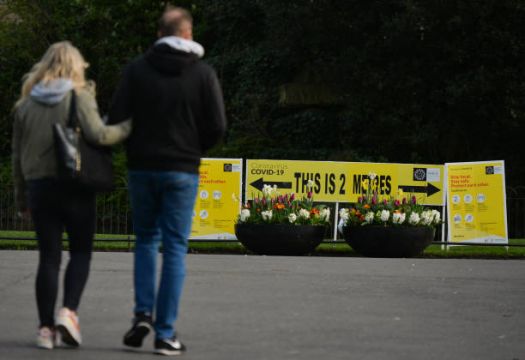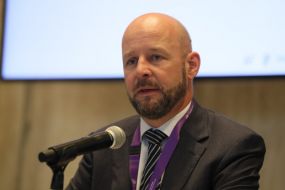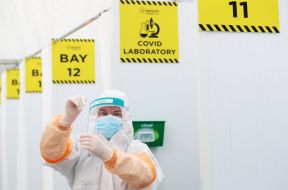Ireland could already be entering a fourth wave of Covid-19, according to a public health expert.
As the Irish Examiner reports, UCC professor Gerry Killeen is concerned there is a “gentle upward trend” in coronavirus figures. He said the rise in cases to 761 yesterday was expected due to a backlog in swabs.
Last night, 18 more deaths were confirmed and 63 people with Covid-19 were being treated in ICU last night.
While professor Killeen believes we are entering a fourth wave, he also said action can be taken against the UK variant.
“I would just like to reassure everyone that B117 is containable. There is no guarantee for future variants, but it is containable.
“It can be pushed down if we can just get back to doing all the things that we need to do.”
Prof Killeen, a founding member of Independent Scientific Advisory Group (Isag) which advocates for Zero Covid, said there are lots of options for the country once the vaccine supply increases.
“The vaccines are coming, and it would be a shame to take an arrow in the chest just as the cavalry come over the hill. Once the vaccines come there are all kinds of options - including elimination.”
Tullamore in county Offaly has the highest infection rate of Covid-19 in the country.
Walk-in test centres
The area's incidence of the disease has increased by 9 per cent over the past week, up to Monday.
The incidence rate per 100,000 people in Tullamore stands at 823 - around five times higher than the national average.
It is after an asymptomatic walk-in testing centre was set up in the town last week, which may have contributed to the high number of cases.
The area is followed by Balbriggan in Dublin, which has a rate of 547 cases per 100,000 people.
Other areas with rates of more than 400 include Letterkenny and Buncrana in Donegal as well as Ongar in Dublin.
In total there are nine local electoral areas have rates of less than 5 cases per 100,000 people, including three in Cork and two in each Mayo and Kerry.
Four more pop-up walk-in Covid-19 testing centres open this morning in Dublin, Galway, Westmeath and Kildare.
They are aimed at catching asymptomatic infections of the disease with those without any symptoms encouraged to attend.







